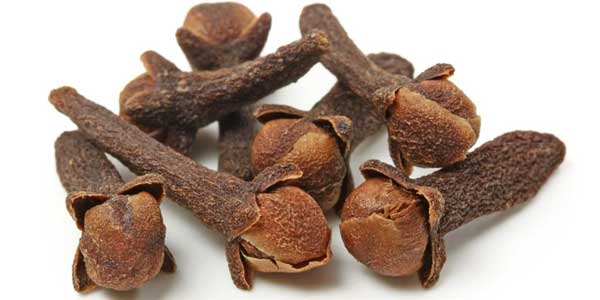Introduction:
Cloves, also known as Laung, are aromatic flower buds that have been used in cooking and traditional medicine for centuries. They are native to the Maluku Islands in Indonesia but have become popular worldwide due to their distinctive flavor and numerous health benefits. In this comprehensive article, we will delve into the uses, qualities, origin, sources, applications, health benefits, culinary uses, how to use cloves in cooking, and potential side effects associated with their consumption.
Origin and Sources of Cloves (Laung):
Cloves have a rich history and trace their origins back to the Maluku Islands, also known as the Spice Islands, in Indonesia. These islands have been a significant hub for the spice trade for thousands of years. Today, cloves are cultivated in various regions across the world, including India, Sri Lanka, Madagascar, and Tanzania. They are harvested from the Syzygium aromaticum tree, which is an evergreen tree belonging to the Myrtaceae family.
Production of Cloves (Laung):
The production of cloves involves careful harvesting and drying of the flower buds. Here’s a step-by-step guide to the production process:
a) Harvesting: Clove buds are harvested when they reach the desired maturity but before they fully open. This ensures that the buds retain their maximum flavor and aroma.
b) Drying: After harvesting, the cloves are spread out to dry. This can be done naturally by exposing them to the sun or through artificial drying methods. The drying process helps concentrate the flavor and enhances the shelf life of the cloves.
c) Sorting and Packaging: Once dried, the cloves are sorted based on their size, quality, and appearance. They are then packaged and prepared for distribution to markets worldwide.

Qualities of Cloves (Laung):
Cloves possess several qualities that make them a highly sought-after spice. Here are some notable qualities of cloves:
a) Aromatic Flavor: Cloves have a warm, sweet, and spicy flavor with hints of bitterness. They are intensely aromatic and release a pleasant fragrance when used in cooking.
b) Strong and Distinctive Taste: Cloves have a strong and distinctive taste that adds depth and complexity to dishes. They have a slightly numbing effect on the palate due to the presence of a compound called eugenol.
c) Versatile Use: Cloves can be used in both sweet and savory dishes, making them a versatile spice. They pair well with a variety of ingredients, including meats, fruits, vegetables, baked goods, and beverages.
d) Rich in Nutrients: Cloves are a good source of several essential nutrients, including fiber, vitamins C and K, and minerals like manganese. However, they are typically used in small amounts, so their nutritional contribution is relatively modest.
Uses and Applications of Cloves (Laung):
Cloves have a wide range of uses and applications in cooking, baking, and traditional medicine. Let’s explore some of the primary uses:
a) Culinary Use: Cloves are a popular spice in both sweet and savory dishes. They are used in various cuisines around the world to add flavor to curries, stews, rice dishes, marinades, pickles, and spice blends. Cloves are also commonly used in baking to enhance the taste of desserts, bread, pastries, and mulled beverages.
b) Aromatics and Infusions: Cloves are often used in aromatics and infusions to impart their fragrance and flavor. They are added to syrups, teas, mulled wines, and spiced beverages like chai to create a warm and comforting aroma.
c) Preservatives and Pickling: Cloves have natural preservative properties due to their antimicrobial and antifungal qualities. They can be used in pickling solutions to extend the shelf life of fruits and vegetables while adding a distinctive flavor.
d) Spice Blends: Cloves are a key ingredient in many spice blends, such as garam masala, Chinese five-spice powder, and pumpkin spice. These blends are used to season a wide range of dishes, from savory curries to sweet desserts.
e) Traditional Medicine: Cloves have been used in traditional medicine for their potential health benefits. They are believed to have antibacterial, antiviral, anti-inflammatory, and digestive properties. Clove oil, derived from cloves, is used in oral care products and as a natural remedy for toothaches and gum problems.

Health Benefits of Cloves (Laung):
Cloves offer several potential health benefits due to their rich chemical composition. Here are some of the notable health benefits associated with cloves:
a) Antioxidant Properties: Cloves are rich in antioxidants that help protect the body against oxidative stress and damage caused by free radicals. Antioxidants play a crucial role in reducing the risk of chronic diseases and promoting overall well-being.
b) Anti-inflammatory Effects: Cloves contain compounds with anti-inflammatory properties, such as eugenol and beta-caryophyllene. These compounds may help reduce inflammation in the body and alleviate symptoms of inflammatory conditions like arthritis.
c) Oral Health Benefits: Cloves have long been used in oral care for their antimicrobial properties. Clove oil can help alleviate toothaches, reduce gum inflammation, and fight bacteria responsible for dental plaque and bad breath.
d) Digestive Aid: Cloves are known to stimulate digestion and relieve digestive discomfort. They can help alleviate bloating, gas, indigestion, and nausea. Clove oil is sometimes used to relieve stomach ulcers and promote a healthy digestive system.
e) Potential Antimicrobial Effects: The active compounds in cloves, such as eugenol, have antimicrobial properties and may help fight against certain bacteria and fungi. Cloves have been traditionally used to treat infections and improve overall immune health.
Use of Cloves (Laung) in Cooking:
Using cloves in cooking is relatively simple, but their strong flavor requires careful measurement. Here are some tips to help you use cloves effectively:
a) Whole or Ground: Cloves can be used whole or ground, depending on the recipe and personal preference. Whole cloves are often used in simmered dishes, stews, and infusions, while ground cloves are more suitable for baking and spice blends.
b) Flavor Balance: Cloves have a potent flavor, so it’s important to use them sparingly to avoid overpowering the dish. Start with a small amount and adjust according to taste.
c) Infusions and Simmering: To extract the flavor of cloves, add them to simmered dishes, broths, or infusions. This allows the aroma and taste to infuse into the liquid.
d) Spice Blends: Cloves are a common ingredient in many spice blends. You can create your own spice blends or use commercially available ones to season your dishes.
e) Sweet and Savory Pairings: Cloves pair well with a variety of ingredients. They complement sweet dishes like cakes, pies, fruit compotes, and spiced beverages. In savory cooking, cloves work well with meats, rice dishes, curries, and pickles.
How to Use Cloves (Laung):
Using cloves in cooking requires some preparation and careful handling. Here are some guidelines to help you use cloves effectively:
a) Whole Cloves: If using whole cloves, gently crush them with a mortar and pestle or the back of a spoon to release their flavors before adding them to your dish. You can also use whole cloves to stud an onion or fruit for added aroma during cooking.
b) Ground Cloves: Ground cloves are more convenient and easy to incorporate into recipes. Simply measure the desired amount of ground cloves and add them directly to your dish.
c) Infusions: To create clove-infused liquids, such as syrups or teas, simmer whole or crushed cloves in water or other liquids for a specified time. Strain the liquid before using or serving.
d) Toasting: Toasting cloves before grinding can enhance their flavor. Heat them in a dry skillet over medium heat until fragrant, stirring occasionally. Let them cool before grinding into a fine powder.
e) Spice Bags: If you want to add the flavor of cloves to your dish without having whole cloves floating around, you can place them in a spice bag or tie them in a cheesecloth pouch. This allows for easy removal after cooking.

Side Effects and Precautions:
While cloves are generally safe for consumption in moderate amounts, it’s important to be aware of potential side effects and exercise caution, especially if you have specific health conditions. Here are some precautions to consider:
a) Allergies: Some individuals may be allergic to cloves or other spices in the same family, such as cinnamon or nutmeg. If you experience any allergic reactions, such as itching, swelling, or difficulty breathing, discontinue use and seek medical attention.
b) Blood-Thinning Effects: Cloves contain a compound called eugenol, which may have blood-thinning properties. If you are taking blood-thinning medications or have a bleeding disorder, consult with a healthcare professional before consuming large amounts of cloves or using clove supplements.
c) Dental Sensitivity: Clove oil, while beneficial for oral health, can cause skin irritation or sensitivity if applied directly to the gums or mouth. Dilute clove oil properly or consult a dentist before using it as a remedy for dental issues.
d) Pregnancy and Breastfeeding: Pregnant and breastfeeding women should use cloves in moderation. While small amounts of cloves in cooking are generally safe, it’s best to consult with a healthcare professional before using concentrated forms of cloves, such as clove supplements or clove oil.
e) Interactions with Medications: Cloves may interact with certain medications, including anticoagulants, antidiabetic drugs, and medications metabolized by the liver. If you are taking any medications, it’s advisable to consult with a healthcare professional before incorporating large amounts of cloves into your diet or using concentrated forms.
Conclusion:
Cloves, with their aromatic flavor and versatility, are a prized spice used in various cuisines around the world. From enhancing the taste of savory dishes to adding depth to desserts, cloves bring a unique and distinctive flavor to culinary creations. Additionally, they offer potential health benefits, including antioxidant and anti-inflammatory properties, oral health benefits, and digestive aid. When using cloves in cooking, it’s important to exercise moderation, as their strong flavor can easily overpower a dish. By understanding their qualities, origins, sources, applications, health benefits, and potential side effects, you can confidently incorporate cloves into your culinary repertoire while reaping their flavorful and healthful rewards.